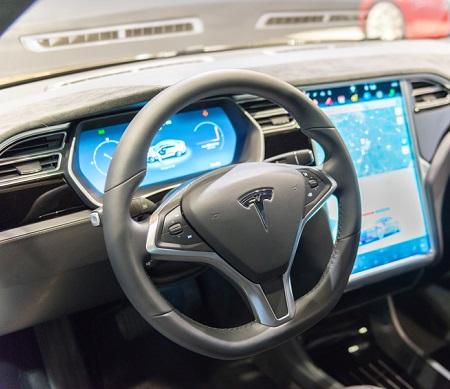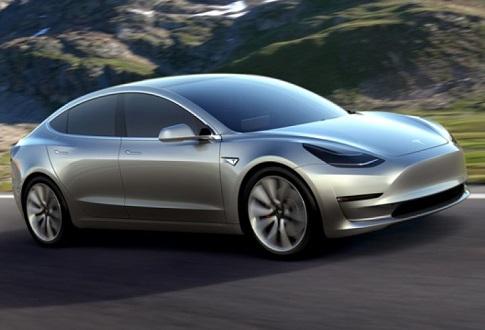Elon Musk Hits Back Over Tesla Autopilot Fatality Article
Elon Musk, the famously brash CEO of Tesla Motors, is taking Fortune magazine to task for what he and the company considers a fundamentally incorrect article regarding a fatal crash.


Tesla Model 3, BMW i3: 10 Electric Vehicles To Own
Tesla Model 3, BMW i3: 10 Electric Vehicles To Own (Click image for larger view and slideshow.)
Tesla CEO Elon Musk has continued to push back against the negative press his electric vehicle company has gotten in the wake of a fatal crash involving a Tesla owner who had engaged the self-driving Autopilot feature.
Through a post on Twitter, Musk directed his followers to a blog post the Tesla team had written regarding a July 2 Fortune article about the crash. The Tesla post, "Misfortune," states from the very start that the magazine's article is fundamentally incorrect.
Tesla response to the misleading Fortune articles about Autopilot https://t.co/zWRM3aMnVC
— Elon Musk (@elonmusk) July 6, 2016
The Fortune article reports that Tesla failed to disclose the crash, which occurred on May 7 and revealed to the public by Tesla and the National Highway Traffic Safety Administration (NHTSA) on June 30, when Musk sold stock in a public offering on May 18.
The crash occurred in Florida and took the life of 40-year-old Joshua D. Brown from Canton, Ohio, who died after his Tesla passed underneath an 18-wheeler and its roof collided with the truck. It then continued along the road before striking two fences and a utility pole.
"Neither Autopilot nor the driver noticed the white side of the tractor trailer against a brightly lit sky, so the brake was not applied," according to Tesla's statement about the crash. "The high ride height of the trailer combined with its positioning across the road and the extremely rare circumstances of the impact caused the Model S to pass under the trailer, with the bottom of the trailer impacting the windshield of the Model S."
In the Tesla blog post, the company argues that not only did Fortune mischaracterize the company's US Securities and Exchange Commission (SEC) filing, it also rushed to publication without properly reaching out to Tesla representatives.
"Fortune entirely ignores what Tesla knew and when, nor have they even asked the questions," according to Tesla. "Instead, they simply assume that Tesla had complete information from the moment this accident occurred."
Tesla maintains that this was a physical impossibility, given the fact that the damage sustained by the Model S in the crash limited Tesla's ability to recover data from it remotely.
"When Fortune contacted Tesla for comment on this story during the July 4th holiday, Fortune never asked any of these questions and instead just made assumptions," the post stated. "Tesla asked Fortune to give it a day to confirm these facts before it rushed its story to print. They declined and instead ran a misleading article."
Tesla also claims there is no evidence to suggest that Autopilot was not operating as designed and as described to users, specifically, as a driver assistance system that maintains a vehicle's position in lane and adjusts the vehicle's speed to match surrounding traffic.
[Read why drivers want autonomous cars that won't kill them.]
The autopilot system involves four different feedback modules, including a camera, radar, ultrasonics, and GPS.
For its part, Fortune is standing behind the article and no correction to the original piece has been published. Alan Murray, the editor of Fortune, sent out this Tweet:
Please. Conspiracy? -- Elon Musk Calls Fortune's Newest Article Part Of An Anti-Tesla Conspiracy https://t.co/gMWTTlBsly
— Alan Murray (@alansmurray) July 7, 2016
Despite updates to the system in October and January, Musk has cautioned drivers to keep their hands on the wheel for now.
"We're being especially cautious at this stage so we're advising drivers to keep their hands on the wheel just in case," Reuters reported Musk as telling the media Oct. 14 at Tesla's Silicon Valley headquarters. "Over time there will not be a need to have your hands on the wheel."
In a statement posted on the Tesla Motors website on June 30, the company acknowledged the inquiry and characterized the incident as "the first known fatality in just over 130 million miles where Autopilot was activated."
About the Author(s)
You May Also Like
How to Amplify DevOps with DevSecOps
May 22, 2024Generative AI: Use Cases and Risks in 2024
May 29, 2024Smart Service Management
June 4, 2024







